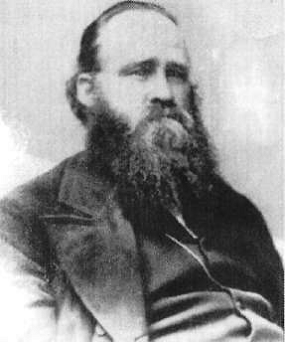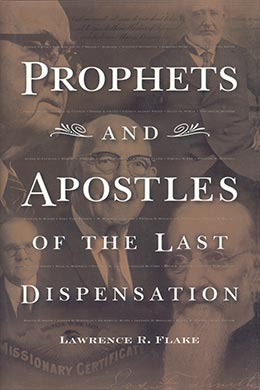Amasa Mason Lyman
Lawrence R. Flake, Prophets and Apostles of the Last Dispensation (Provo, UT: Religious Studies Center, Brigham Young University, 2001), 285–87.

Born: 30 March 1813, Lyman, New Hampshire
Quorum of the Twelve Apostles: 20 August 1842 (age 29) to 20 January 1843
Additional counselor to President Joseph Smith: 4 February 1843 to 27 June 1844
Quorum of the Twelve Apostles: 12 August 1844
Released from Quorum of the Twelve: 6 October 1867
Excommunicated: 12 May 1870
Died: 4 February 1877 (age 63), Fillmore, Utah
Anticipation mounted as nineteen-year-old Amasa Lyman eagerly waited to be introduced to the Prophet Joseph Smith. Since his baptism in April 1832, three months earlier, Amasa had traveled over seven hundred miles from his birthplace in Grafton County, New Hampshire, to meet Joseph Smith and join the Saints. Of his encounter with the Prophet, Brother Lyman wrote: “There was nothing strange or different from other men in his personal appearance, yet, when he grasped my hand . . . I felt as one of old in the presence of the Lord; my strength seemed to be gone, so that it required an effort on my part to stand . . . and the still small voice of the spirit whispered its living testimony in the depths of my soul, where it has ever remained, that he was the Man of God” [1]
A few weeks after this meeting, Joseph announced, “Brother Amasa, the Lord requires your labors in the vineyard.” With no more information than that, Brother Lyman replied, “I will go.” [2] This kind of dedication characterized the next thirty-five years of his life, during which it is said that he filled nearly a hundred missions for the Church. One day in Nauvoo he received word that the Prophet wanted him to go north on a mission. The steamer he was to take up the river was then in view. Amasa rushed home, grabbed a few clothes, bade his family farewell, and was at the landing when the boat arrived.
Faithful to the Prophet, Elder Lyman marched with Joseph Smith in Zion’s Camp, stood with him in the defense of Far West, and received the death sentence with him at the fall of that city. Following the reversal of this illegal sentence, Brother Lyman served several weeks in prison with the Prophet. No stranger to abuse, Amasa had been taken captive once before by a Missouri mob and was forced to ride astraddle a six-pound cannon for four days as it was pulled over rough Missouri roads.
At the age of twenty-nine, Elder Lyman became a member of the Twelve, replacing Orson Pratt, who had been excommunicated. Five months later when Elder Pratt was reinstated to his former position in the quorum, Joseph Smith took Amasa Lyman as an additional counselor in the First Presidency. After the death of the Prophet, Amasa again became a member of the Twelve. He traveled west with the first pioneer company and became very active in the colonization efforts, especially in California, where he helped the Saints settle San Bernardino. [3]
For two years, beginning in 1860, he and Elder Charles C. Rich presided jointly over the European Mission. During this assignment in England, Elder Lyman preached that the Atonement of Christ was not necessary. When called into account for this heresy by the Quorum of the Twelve, he confessed his error, asked forgiveness, and published a retraction of the false doctrine. However, within a few weeks he was again found expounding the same teaching and was released from the Quorum of the Twelve. In 1870 he was excommunicated from the Church. [4] He later associated himself with an apostate organization called the Godbeites. He died in 1877, having never returned to the cause for which he had given so much. [5]
Notes
[1] Andrew Jenson, Latter-day Saint Biographical Encyclopedia (Salt Lake City: Andrew Jenson History, 1901), 1:97.
[2] Jenson, Latter-day Saint Biographical Encyclopedia, 1:97.
[3] Albert R. Lyman, Amasa Mason Lyman: Trailblazer and Pioneer from the Atlantic to the Pacific (Delta, UT: Melvin A. Lyman, 1957), 198–217.
[4] Lyman, Amasa Mason Lyman, 250.
[5] See also Lyndon W. Cook, The Revelations of the Prophet Joseph Smith (Provo, UT: Seventy’s Mission Bookstore, 1981), 266–67.
